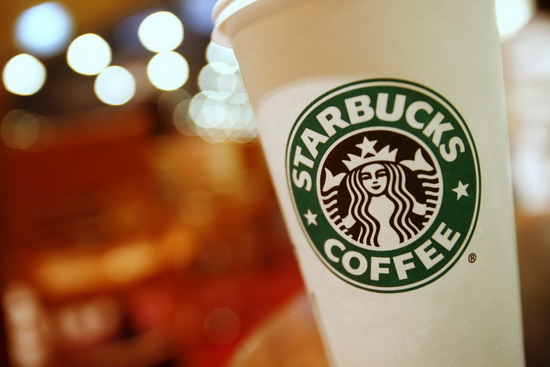Global Biz
Starbucks sees higher 2011 coffee costs
(Agencies)
Updated: 2011-01-27 10:59
 |
Large Medium Small |
|
 A cup of Starbucks coffee sits on a table in a cafe in central Hong Kong January 16, 2011. [Photo/Agencies] |
LOS ANGELES - Starbucks Corp, the world's largest coffee chain, expects rising coffee prices to hit profits more than it previously thought but stressed that it would not raise prices to cover the extra expense.
| ||||
Rising prices for ingredients ranging from coffee and milk to beef and bread are squeezing restaurant operators.
Earlier this week Starbucks rival McDonald's Corp said it would hike prices "where it makes sense" to offset some, but not all, of the food cost increases.
Seattle-based Starbucks on Wednesday narrowed its earnings forecast to $1.44 to $1.47 a share for fiscal year 2011, compared with the average analyst expectation of $1.49 a share. The company expects commodity costs to cut earnings by about 20 cents this fiscal year, compared with its previous forecast of 8 cents to 10 cents a share in November.
"I think they're being conservative," said Oppenheimer analyst Matt DiFrisco, because of the unknowns facing the company.
While a strengthening US economy could boost sales and give the company room to put through another price increase, he said, Starbucks does not yet know how much it will have to pay to oust Kraft Foods Inc as its supermarket packaged coffee distributor.
"They're going to have to pay Kraft some money this year," said RBC Capital Markets analyst Larry Miller. Starbucks wants to end its 12-year-old partnership with Kraft on March 1, and some analysts estimate that the fee for early termination could top $1 billion.
Starbucks removed one uncertainty from investors' minds by locking in coffee prices for 2011. Coffee represents 15 percent to 20 percent of Starbucks' cost of sales.
The benchmark "C" arabica coffee futures contract trading on ICE Futures US remains around levels last seen 13-1/2-years ago, after surging nearly 80 percent in a rally that began in June 2010.
Late last year the company raised drink prices in the United States and China due to surging prices for coffee and other commodities.
Chief Financial Officer Troy Alstead told Reuters that the company has bought all the coffee it will need for this year.
A Starbucks spokeswoman added that the company had already bought coffee for "a few months" of 2012.
"I don't think you'll see what I'll call a new round" of price increases, said Alstead, who noted that previously announced menu price increases due to the cost of coffee have not yet shown up in every market.
The CFO told Reuters there was no meaningful resistance to drink price hikes thus far.
Starbucks restarted profit growth in 2010 after a two-year restructuring that involved slashing costs and shuttering almost 1,000 cafes globally. Since then, investors have enjoyed quarterly profits that often topped analysts' views.
That could change, RBC analyst Larry Miller said.
"The ability for Starbucks to continue to beat is significantly hampered by 20 cents of commodity costs," he said. "There are a lot of headwinds this year."
Still, Miller sees a silver lining: "If they can hold margins and have coffee costs decline, it makes for a nice 2012 story."
Profit jumps
Starbucks' profit for the fiscal first quarter ended January 2 jumped almost 44 percent from the year-ago period to $346.6 million, or 45 cents a share. That easily topped analysts' average call for a profit of 39 cents per share for the latest quarter, according to Thomson Reuters I/B/E/S.
Cost control and efficiency efforts helped operating margins improve 800 basis points to 17.3 percent in the United States and increase 620 basis points to 13.8 percent internationally.
Sales at Starbucks cafes open at least 13 months were up a better-than-expected 8 percent in the United States and up 5 percent internationally for the holiday quarter, which traditionally is Starbucks' biggest for revenue.
Starbucks shares fell 2.8 percent to $32.16 in after-hours trading. The stock, which fell below $8 in November 2008 when Starbucks' overbuilding crashed into a US slowing economy, hit a 52-week high of $33.78 on Tuesday.
Option traders were expecting bullish news from Starbucks on Wednesday and were on the wrong side of that bet.
| 分享按钮 |



